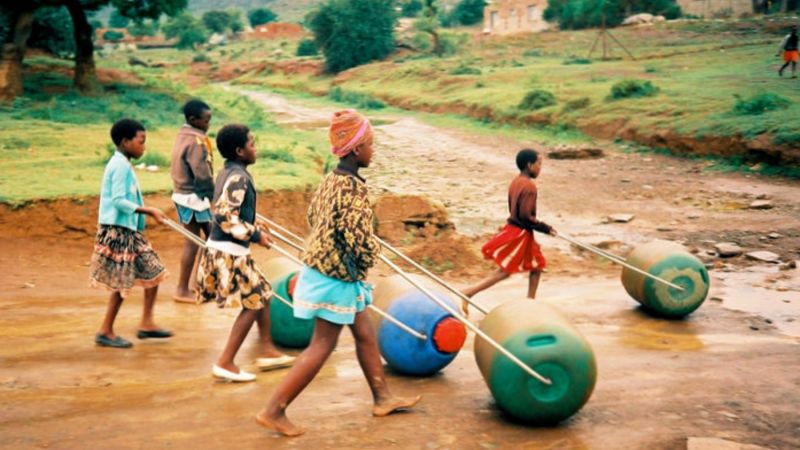Repurposing Resources
Published on by Trudi Schifter, CEO and Founder AquaSPE in Case Studies
Around half of South African households do not have water piped into their homes. It’s often women and children who have to travel to neighbouring houses or local watering holes to collect it. Founder Grant Gibbs, Project Manager Warrick Gibbs, and Head of Operations Ryan Gibbs explain how Hippo Rollerhelps people transport water more quickly and easily and outline the challenges of distributing this inexpensive and ingenious solution more widely.
.jpg)
Finding investment opportunities to scale up has proved challenging.
Despite the UN World Water Water Report, “Leaving No One Behind”, and the continued increase in basic drinking water services globally, there are still very few solutions which address the burden that billions of people still carry when transporting water from pipes and bore holes to their homes every day. Hippo Roller has changed millions of lives with appropriate technology in water-stressed communities by improving access to water with a device used to carry 90L of water more easily and efficiently than traditional methods.
Although proven in the field for 27 years and having distributed 60,000 Hippo Rollers to 51 countries, finding investment opportunities to scale up has proved challenging. Shipping costs from South Africa results in a high landed cost in other countries around the world. Partnering with suitable investors and bulk distributors will allow for a phased scaling up of distribution and a shift to local manufacture of Hippo Rollers.
This simple technology can play a major role in meeting the needs of rural and informal communities globally, but it's still too expensive for many of its intended users. To date, Hippo Roller has relied on sponsorship funding from corporate social investment budgets, NGOs, governments and donors, but are looking to expand into retail sales with the aid of micro-finance facilities.
Taxonomy
- Access